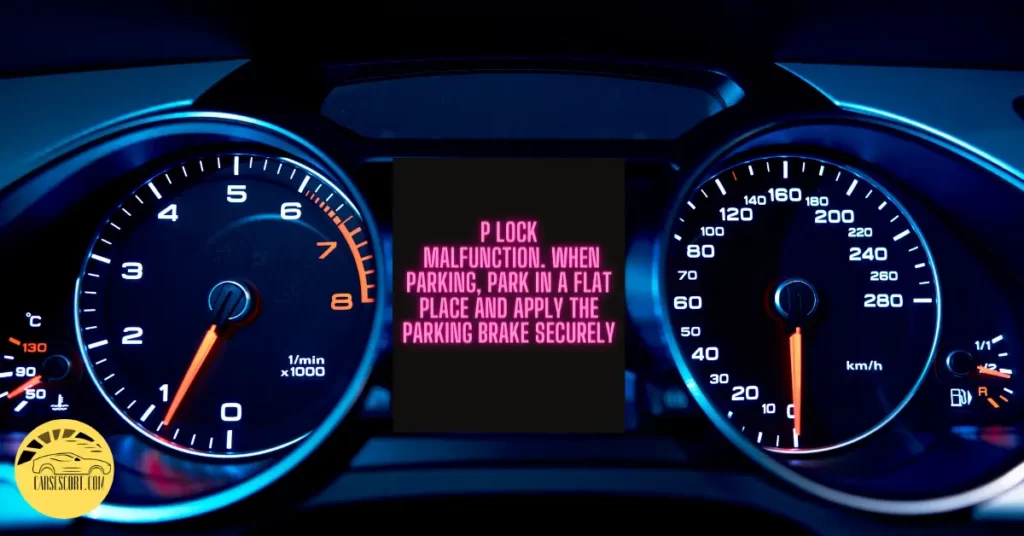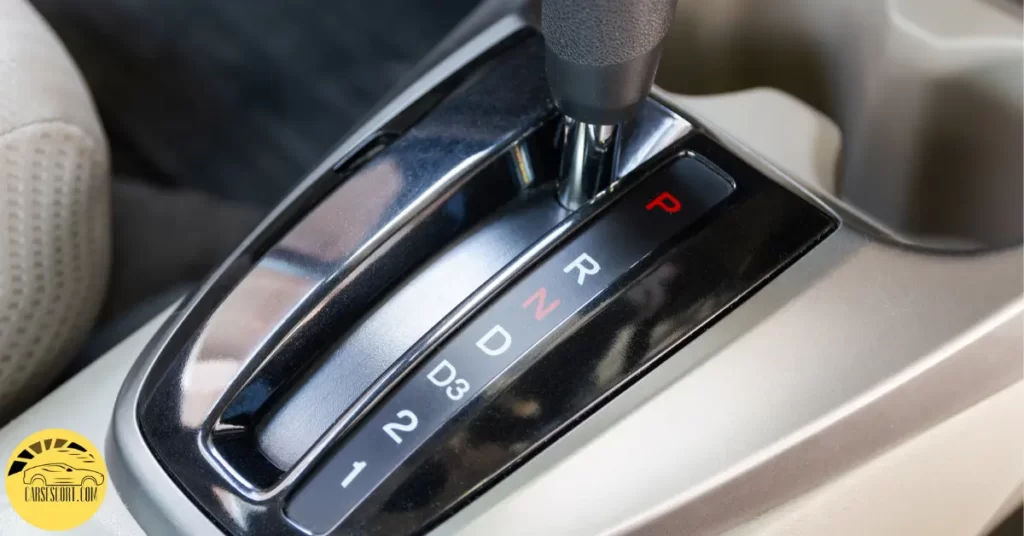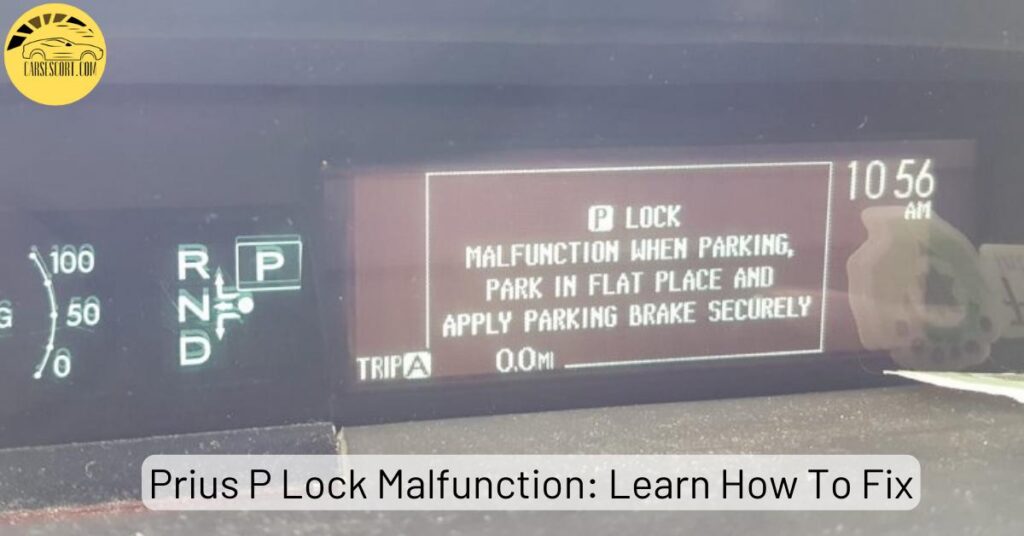The Toyota Prius has gained recognition for its exceptional fuel efficiency, sleek design, and cutting-edge technology. However, like any vehicle, it is not immune to occasional problems. Among the issues Prius owners reported, Prius P Lock Malfunction stands out as a common concern.
The occurrence of a Prius P Lock Malfunction error code can hinder the complete startup of the vehicle. This issue typically arises due to electrical problems stemming from various factors, such as a damaged wiring harness, a depleted auxiliary battery, a faulty transmission ECU, or a blown fuse.
The (P lock malfunction. When parking, park in a flat place and apply the parking brake securely) code restricts the ability to shift the vehicle out of park mode, causing frustration and inconvenience for the owner.
In most cases, the malfunction can be traced back to battery or fuse issues, which are the primary culprits behind this problem.
This article will explain the causes behind this malfunction, explore potential solutions, and offer preventive measures to keep your Prius running smoothly.
What Causes Prius P Lock Malfunction?

1. Low Battery Voltage
Prius vehicles use a hybrid system with high-voltage batteries. If the battery voltage drops below a certain level, it can affect the operation of various systems, including the parking lock mechanism.
Insufficient battery power may prevent the P Lock from engaging or disengaging properly and may display (P lock malfunction. When parking, park in a flat place and apply the parking brake securely)
Fix:
It’s important to recharge or replace the battery. Ensure that the high-voltage battery is fully charged, and if the auxiliary battery is weak or discharged, consider replacing it with a new one.
2. Faulty or Blown Fuse
The fuse box in a Prius contains various fuses that protect electrical circuits from excessive current. If a fuse related to the P Lock system becomes faulty, it can disrupt the power supply, leading to parking lock malfunction prius.
This can happen due to a blown fuse or corrosion in the fuse contacts.
Fix:
If a faulty fuse is identified as the cause, it should be replaced with a new fuse of the correct rating. Carefully follow the manufacturer’s instructions or seek professional assistance to ensure the correct replacement procedure.
3. Faulty 12-Volt Start or Auxiliary Battery
The Prius uses a 12-volt auxiliary battery to power various systems, including the P Lock mechanism. If the auxiliary battery is faulty, weak, or discharged, it may not provide sufficient power to engage or disengage the P Lock properly. This can result in a toyota prius p lock malfunction.
Fix
If the auxiliary battery is faulty, it should be replaced with a new battery. Ensure that the replacement battery meets the manufacturer’s specifications and follows the appropriate procedures for battery replacement.
4. Damaged Wiring Harness
The wiring harness in a Prius carries electrical signals and power to various components, including the P Lock system.
If the wiring harness becomes damaged due to wear and tear, rodents, or physical trauma, it can interrupt the electrical connection, causing Toyota Prius p lock malfunction.
Fix
The affected section should be repaired or replaced. A professional technician should carefully inspect and repair the damaged wiring to ensure proper electrical connections.
5. Faulty Transmission ECU
The Transmission Electronic Control Unit (ECU) is responsible for controlling the operation of the transmission, including the engagement of the P Lock mechanism.
If the Transmission ECU malfunctions, it may not send the correct signals to engage or disengage the P Lock, leading to Prius P lock malfunction.
Fix:
If the Transmission ECU is determined to be faulty, it may need to be repaired or replaced. Consult a qualified technician who can diagnose the issue accurately and perform the necessary repair or replacement of the Transmission ECU.
6. Faulty Parking Lock Actuator
The parking lock actuator is responsible for engaging and disengaging the parking lock mechanism. If the actuator fails or becomes damaged, it can result in a Prius P Lock malfunction.
This can occur due to wear and tear, electrical issues, or mechanical failure.

Fix:
If the parking lock actuator is faulty, it must be replaced. A qualified mechanic can identify the problem and replace the actuator with a new one to restore proper functioning.
7. Sensor or Switch Failure
The P Lock system relies on sensors and switches to detect the position of the gear selector and engage the parking lock accordingly. If any of these sensors or switches fail, it can result in a malfunction.
For example, a faulty gear position sensor may not signal to engage the P Lock when the vehicle is in the Park position.
Fix
When a sensor or switch is found to be faulty, it should be replaced with a new one. A qualified technician can identify the specific component that needs replacement and install a new sensor or switch to resolve the issue.
FAQ
What is the P button on a Prius?
The “P” button on a Prius stands for “Park.” It is used to engage the parking gear and secure the vehicle when parked.
Why is the parking brake light staying on in my Prius?
The parking brake light staying on in your Prius could indicate a problem with the parking brake system. It is recommended to have the vehicle inspected by a qualified technician to diagnose and resolve the issue.
Why is my Prius telling me to shift to P?
If your Prius tells you to shift to “P,” the vehicle’s transmission is not in the “Park” position. The warning message is a reminder to shift the gear into “Park” before turning off the engine and exiting the vehicle.
Read More From Our Cars Guide:
Affiliate Disclosure: Cars Escort is a participant in the Amazon Services LLC Associates Program. As an Amazon Associate, we earn from qualifying purchases made through affiliate links on our site. Read Our Disclaimer .

